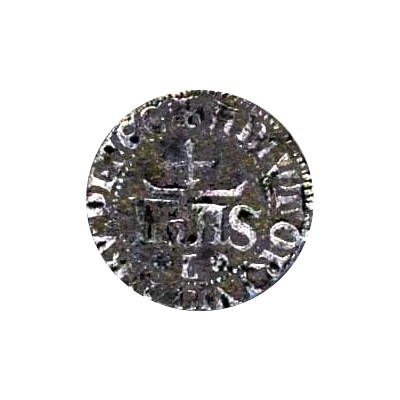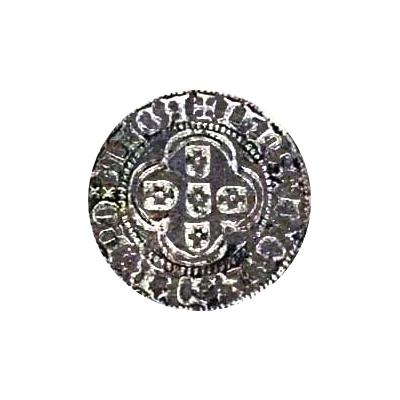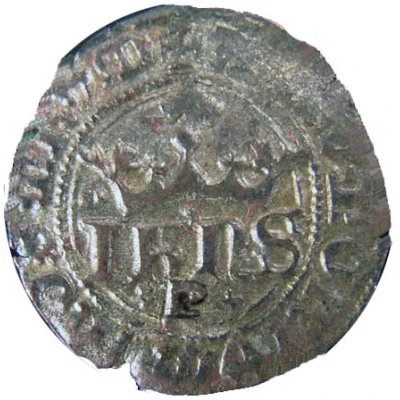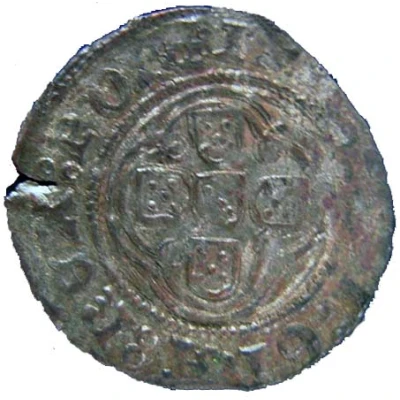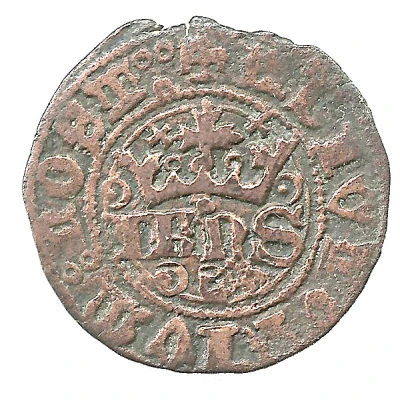
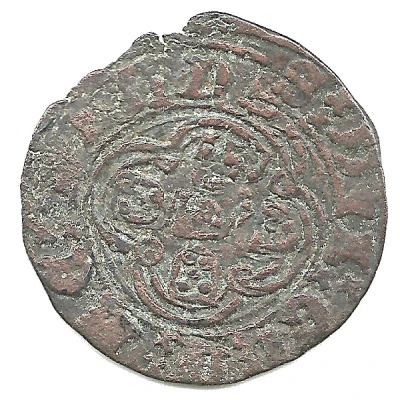

½ "Real of 10 soldos" - João I Lisboa ND
| Billon | 1 g | 19 mm |
| Issuer | Portugal |
|---|---|
| King | John I (João I) (1383-1433) |
| Type | Standard circulation coin |
| Years | 1385-1397 |
| Value | ½ Real = 5 Soldos = 60 Dinheiros |
| Currency | Libra (2nd Dinasty, 1383-1415) |
| Composition | Billon |
| Weight | 1 g |
| Diameter | 19 mm |
| Shape | Round (irregular) |
| Technique | Hammered |
| Demonetized | Yes |
| Updated | 2024-10-07 |
| Numista | N#36362 |
|---|---|
| Rarity index | 72% |
Reverse
Coat of arms of Portugal in a quatrefoil
Script: Latin (uncial)
Lettering: IhnS DG REX PORTVGAL
Lettering (regular font): IHNS DG REX PORTVGAL
Comment
The "Secret symbols" are small marks at any part of the coin that, we believe, are to identify the "fornaça"(Team maker) or (and) the metal composition.There are more than 200 different marks known.
During this period the counting unit was the "Real of 10 Soldos" = 0.5 Libras
More examples:
Interesting fact
One interesting fact about the "Real of 10 soldos" coin is that it was used as a form of currency during the reign of King João I of Portugal, who ruled from 1385 to 1397. The coin was made of billon, a type of alloy that consists of a mixture of silver and copper, and it weighed 1 gram. Despite its small size and relatively low value, the coin played an important role in the economy of Portugal during that time period. It was used for everyday transactions and was also used to pay taxes and debts. Today, the coin is considered a rare and valuable collector's item, and it is highly sought after by numismatists and historians.
